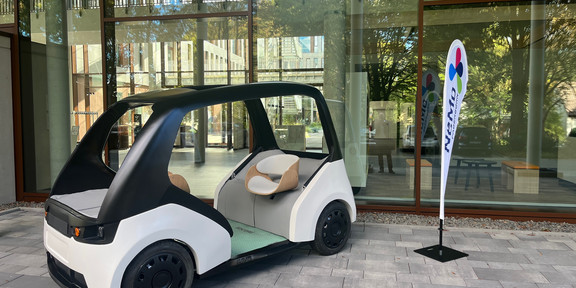The Social Dimension of New Mobility

NeMo.bil pursues a systemic approach: It aims to expand public transport and enable individual public mobility that is as comfortable as using your own car. The concept: Automated smaller vehicles, so-called Cabs, which serve the first and last miles, unite on longer routes to form a convoy that is pulled by a larger automated vehicle, a so-called Pro. The electrified Cabs are particularly lightweight and can seat up to four people. The Pros serve as mobile charging stations and enable higher ranges and speeds in the convoy.
"By combining both types of vehicles, the overall system can have a previously unattainable energy efficiency," emphasises Prof. Johannes Weyer, who holds a senior professorship for sustainable mobility at TU Dortmund University. His team brings a social science perspective to the project, in which a total of 20 partners from industry and science are working together. The TU scientists will look at people's mobility behaviour and investigate their willingness to use innovative mobility offers. To this end, they will design an agent-based model of the Paderborn region and test the acceptance of the new means of transport. They will conduct experiments with the traffic simulator SimCo, which was developed at TU Dortmund University. The new model will depict real people and their everyday mobility, especially the choice between car, public transport, bike - and in the future - NeMo.bil.
"With the help of simulation experiments, it can be investigated before practical use whether people will use the new service and how it should be designed so that it appeals to as many people as possible," says Prof. Weyer. There are already initial considerations to implement NeMo.bil in the eastern Ruhr area after successful implementation in pilot applications in the Paderborn area.

